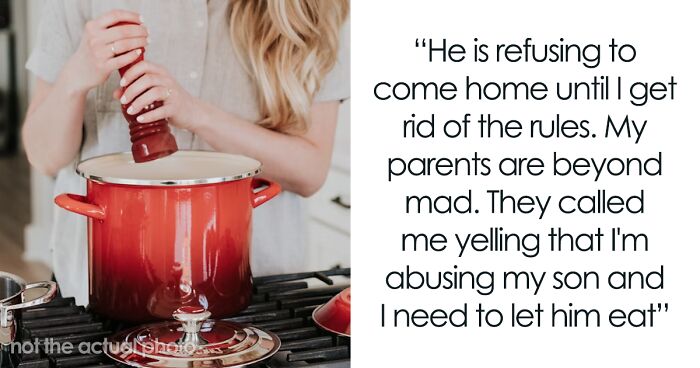
“I Am Starving Him”: Teen Flips Out Over Reduced Food Portions, People Online Take His Side
Our childhood food habits often stay with us well into adulthood, so parents are encouraged to model healthy behaviors for their kids.
However, Reddit user Main-Bat-2458 started feeling like she had to take drastic measures. In a post on the subreddit ‘Am I the [Jerk]?‘, the mother revealed that she was struggling with her son’s excessive eating, so she decided to limit his intake.
But this soon spiralled into a huge conflict between them and now she’s unsure if she made the right decision.
Kids need to fuel their growing bodies with enough food, but this mom thought her son was having too much
Image credits: RDNE Stock project / pexels (not the actual photo)
So she decided to limit it against his will
Image credits: Polina Tankilevitch / pexels (not the actual photo)
Image credits: cottonbro studio / pexels (not the actual photo)
Image credits: Main-Bat-2458
Tweens and teens need extra fuel for a healthy mind and body
It might sound like the 16-year-old is eating a lot if we compare him to the average adult, but we have to consider the context. Classes, after-school programs, fluctuating moods — everything plays a part.
“Kids often have a hard time fueling their activities,” said Cara Marrs, registered dietitian nutritionist at UCHealth Yampa Valley Medical Center. “We need to remember that they’re not just fueling for sports and activities like adults, but they are forming organs and bones as well.”
How many calories should a teenager eat a day?
According to Marrs, when it comes to caloric intake, there is a notable difference between boys and girls, pre-adolescents and 16- or 17-year-olds, and athletes and non-athletes.
It could further depend upon how many hours a day a girl or boy practices, the specific sport, and how much they weigh. With that being said, the broad ballpark numbers to keep in mind are:
- For children ages 6-10 = 2,000 calories/day;
- For boys ages 11-15 = 2,500/daily and girls = 2,200/daily;
- Older teens = about 3,000 calories a day, but more active athletes may need up to 5,000/daily.
Since the mom said the issue is not about health, it’s a bit curious why she decided to take away some of the foods.
Marrs said parents can limit ultra-processed products, but they shouldn’t create taboos or ultimatums as they can create issues.
Instead, parents can set a good example for their children by making healthy food choices in front of them, sharing meals together when possible, and offering lots of options.
“Kids are smart, they’re savvy, and if we talk to them in an adult manner about the reasons why we want them to be eating in a nourishing way, you often get a good response from them,” she added.
As the story went viral, a heated discussion broke out in the comments between its author and the people who read it
Explore more of these tags
I can't believe all the yta people. It's simple. She buys snacks for the week for the kids, all of the kids, but 1 kid eats it all in a matter of a day. No. Just no. You can't just let one kid eat everything and let the others go without. So set limits on the snacks so everyone can have some. Provide extra at mealtime. And the kid can make a sandwich whenever he wants. He isn't gonna die. He isn't starving. We are talking about snacks here.
And she limited him to FIVE prepackaged snacks a DAY. That's still a nice amount of tasty stuff
Load More Replies...Header should actually be "Teen Flips Out Over Reduced Snack And Candy Portions, People Online Take His Side". People here don't seem to do, the majority gets the point of the mother. Which is unlimited fruit, veg and sandwiches - and family shared cooked meals; as the latter requires planning and time to prepare three times a day for in total 6 persons, a reasonable strategy. (edit:typo)
It's really not just snacks and candy. She said she only allows 2 servings of ACTUAL food as well. Just because she serves a main and sides doesn't mean anything.
Load More Replies...I can't believe all the yta people. It's simple. She buys snacks for the week for the kids, all of the kids, but 1 kid eats it all in a matter of a day. No. Just no. You can't just let one kid eat everything and let the others go without. So set limits on the snacks so everyone can have some. Provide extra at mealtime. And the kid can make a sandwich whenever he wants. He isn't gonna die. He isn't starving. We are talking about snacks here.
And she limited him to FIVE prepackaged snacks a DAY. That's still a nice amount of tasty stuff
Load More Replies...Header should actually be "Teen Flips Out Over Reduced Snack And Candy Portions, People Online Take His Side". People here don't seem to do, the majority gets the point of the mother. Which is unlimited fruit, veg and sandwiches - and family shared cooked meals; as the latter requires planning and time to prepare three times a day for in total 6 persons, a reasonable strategy. (edit:typo)
It's really not just snacks and candy. She said she only allows 2 servings of ACTUAL food as well. Just because she serves a main and sides doesn't mean anything.
Load More Replies...
 Dark Mode
Dark Mode 

 No fees, cancel anytime
No fees, cancel anytime 







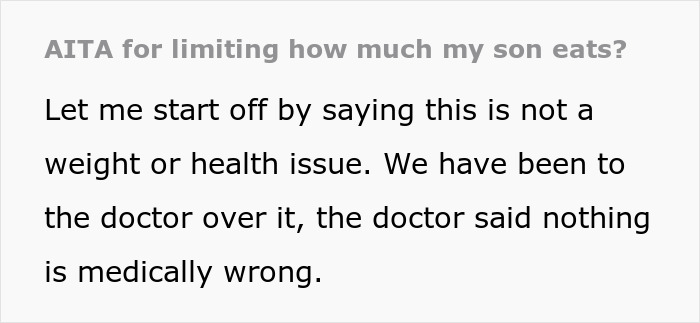
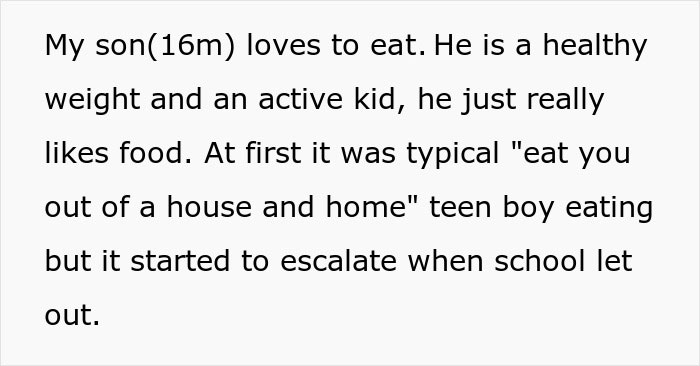

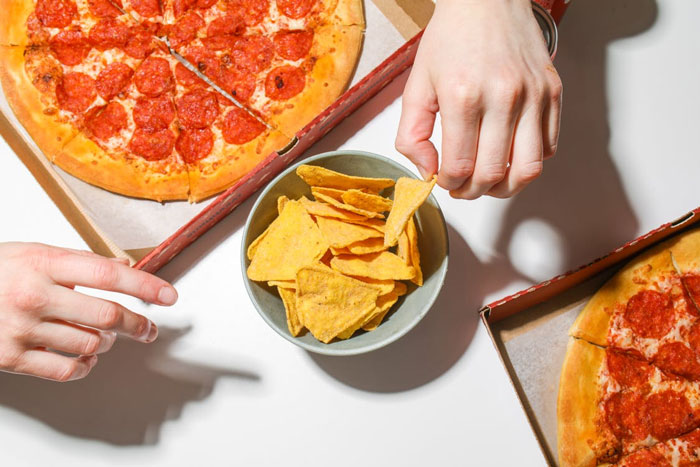
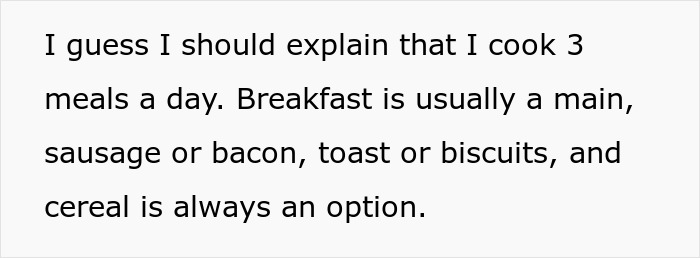
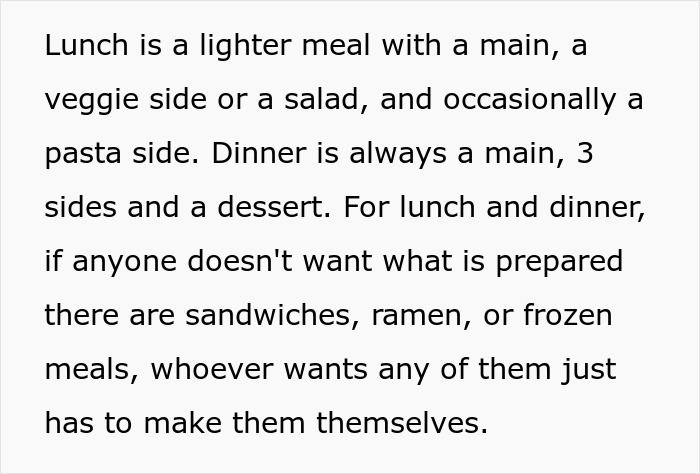
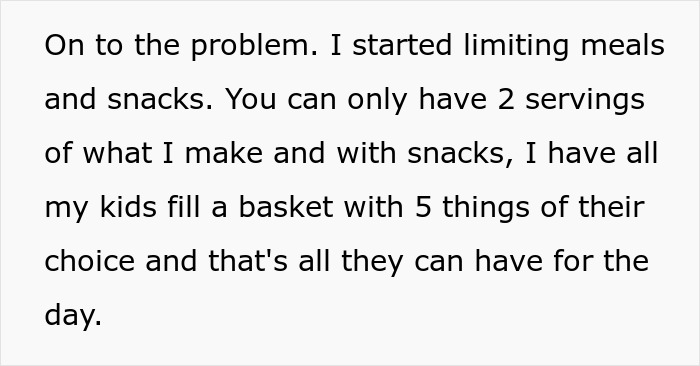
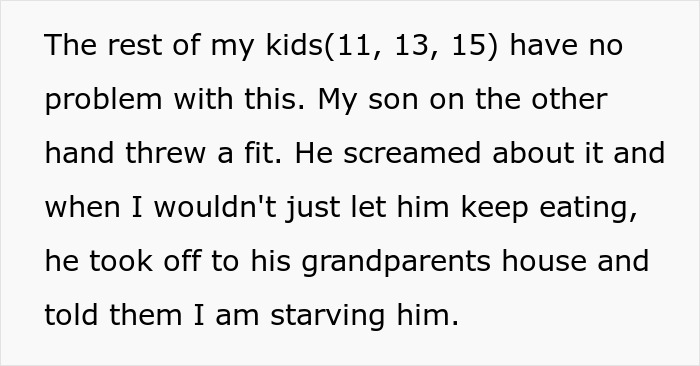
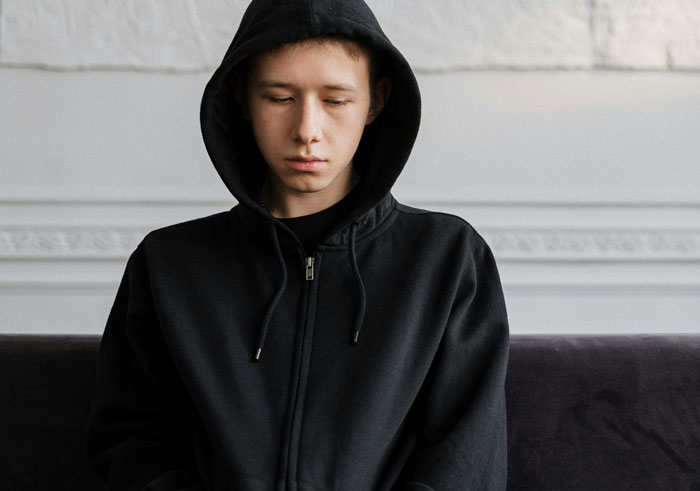
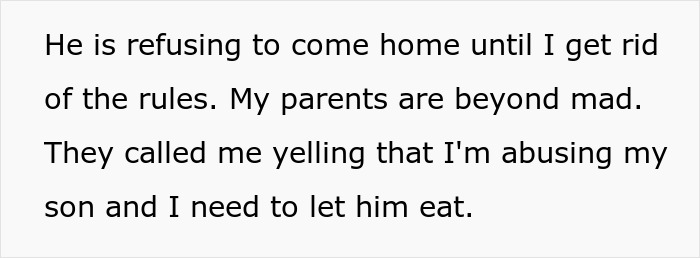
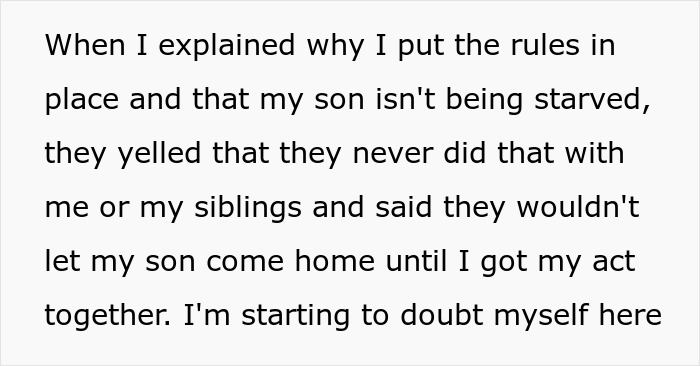
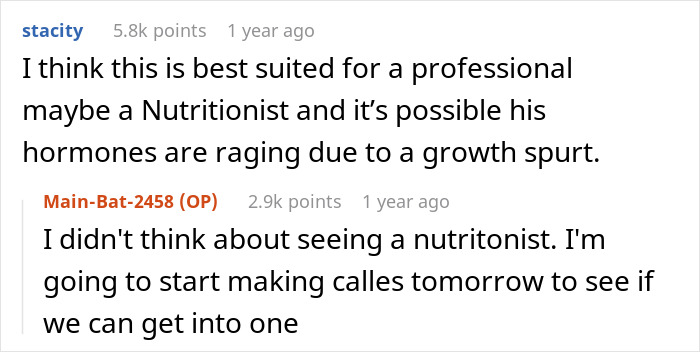
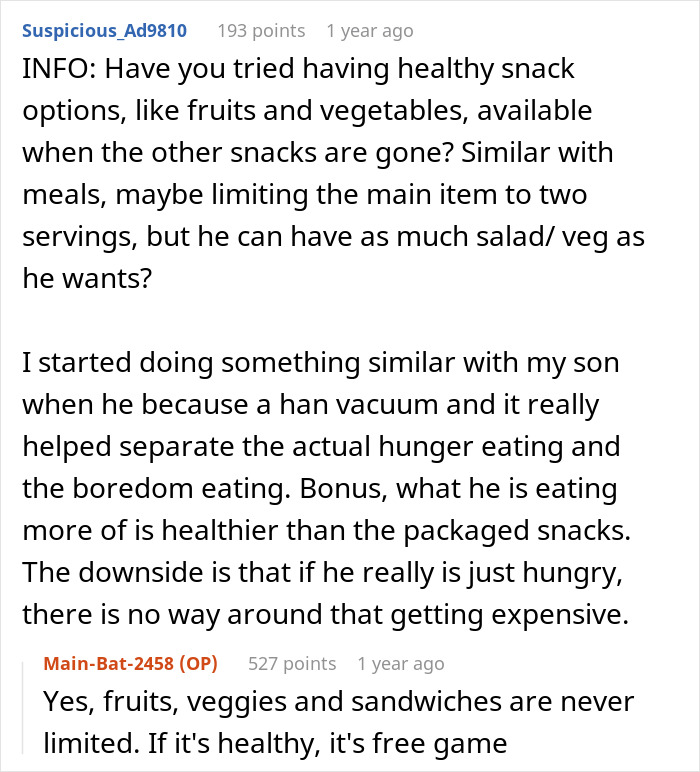
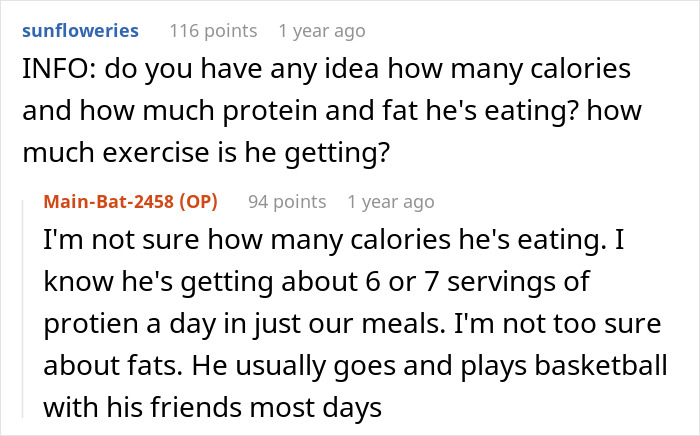
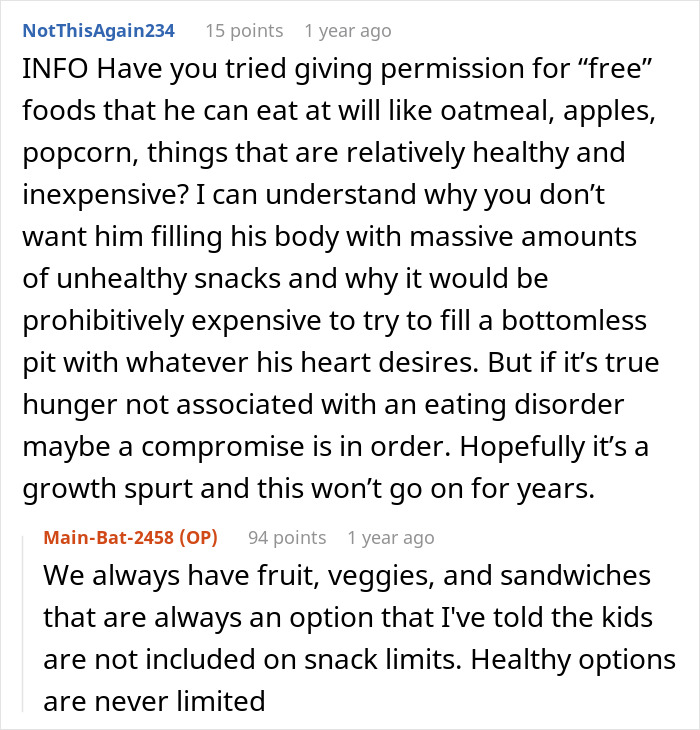


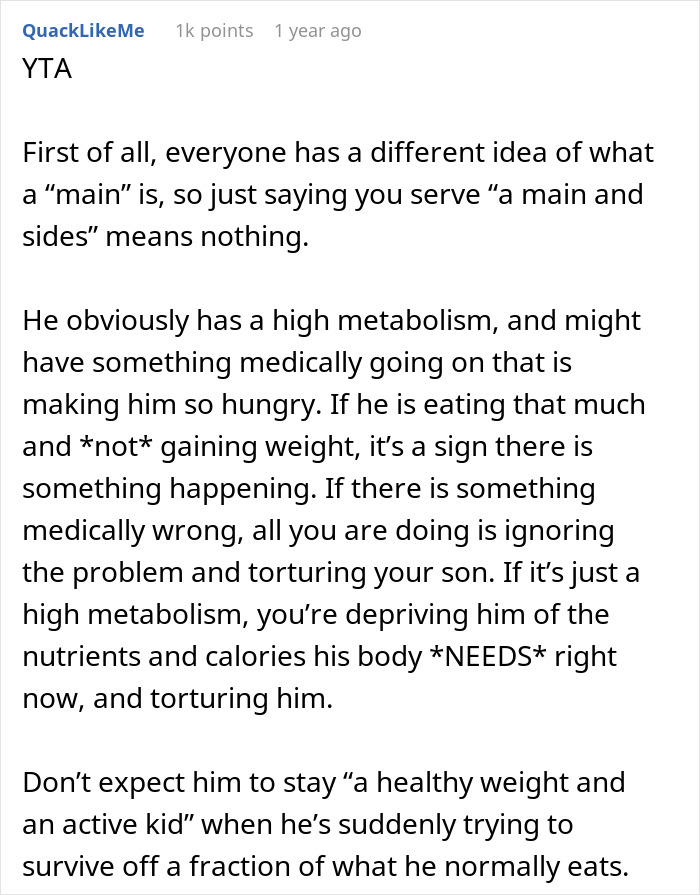




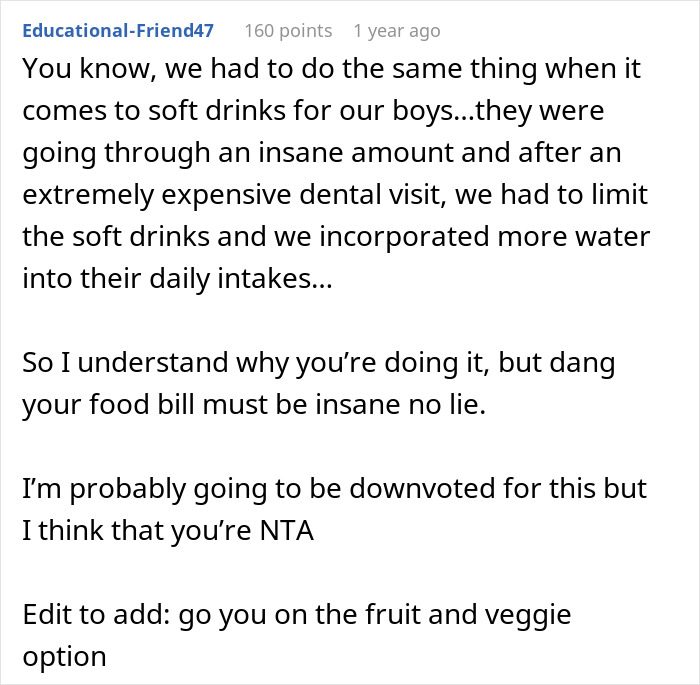
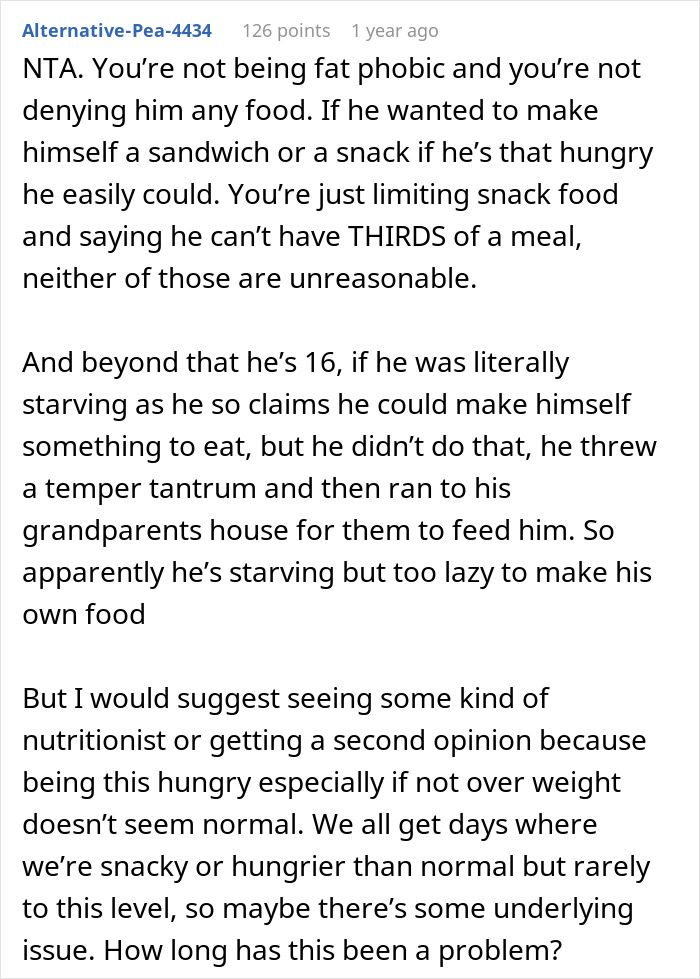
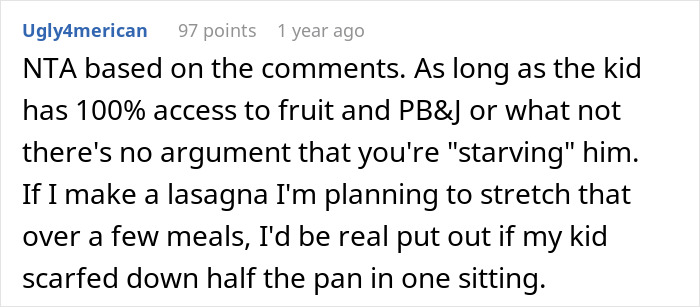









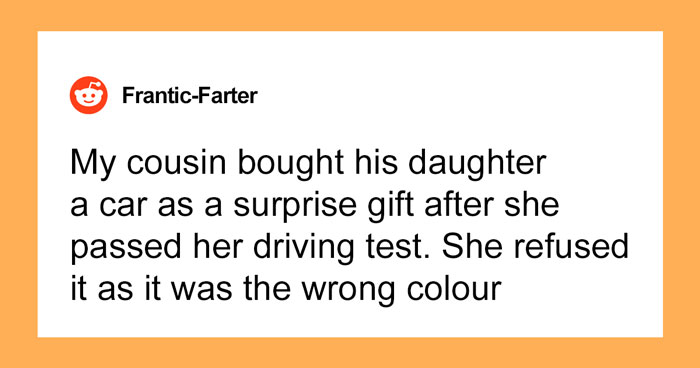
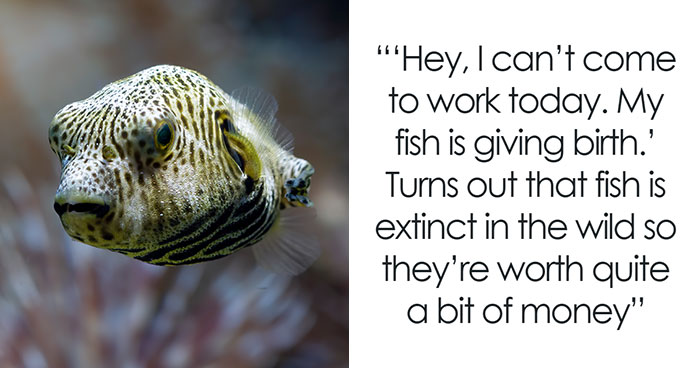
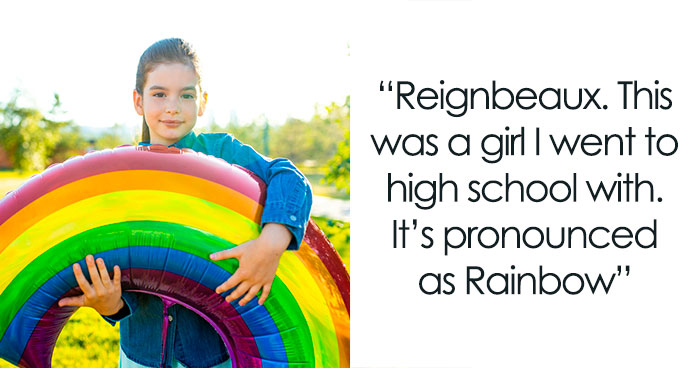
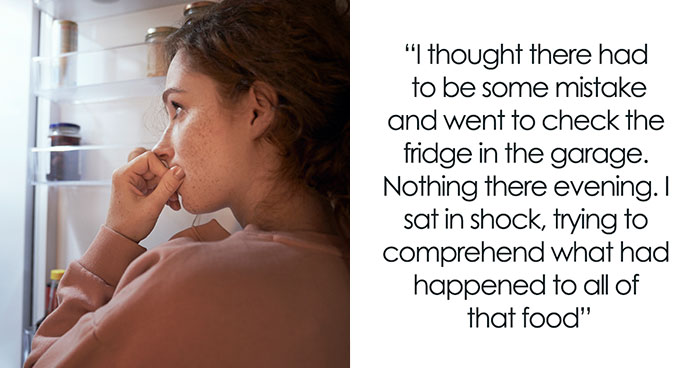



















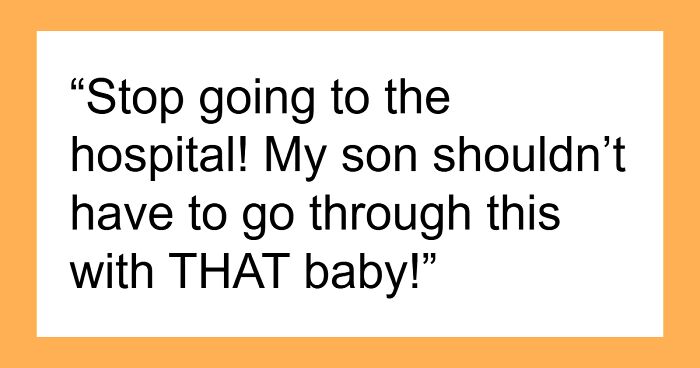

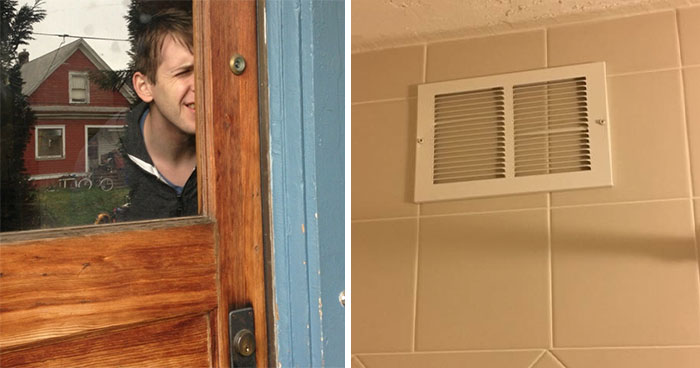

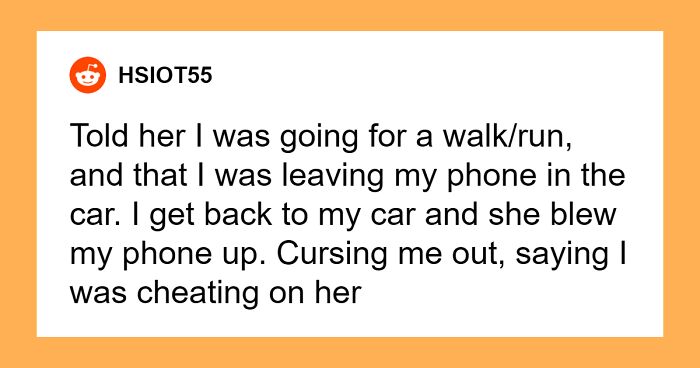

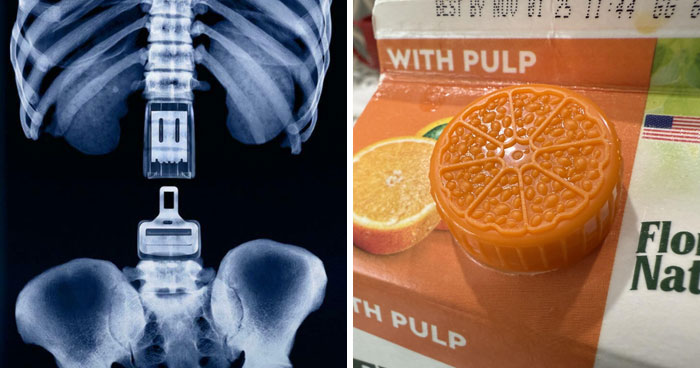


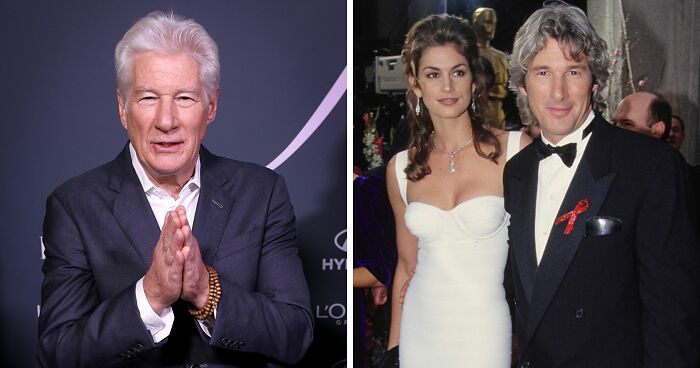

53
138